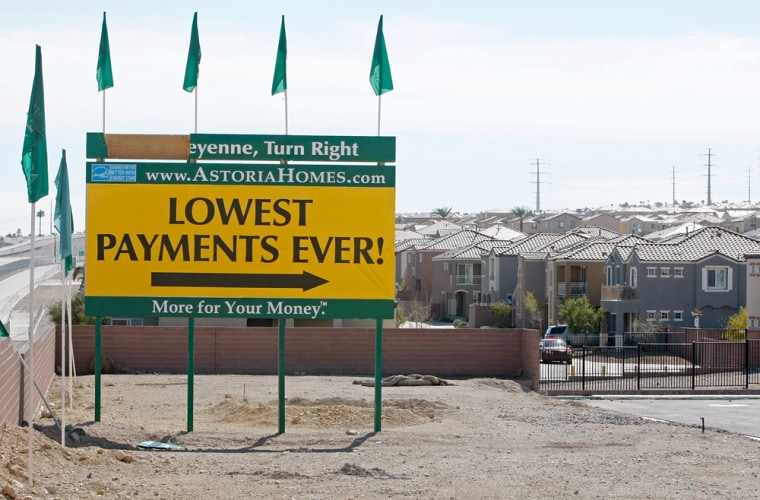Just when things were looking even worse in the economy — consumer confidence in free fall and home prices dropping faster — came some good news: Wall Street bolted higher on a regulator’s prediction that the recession may end this year.
The Dow Jones industrials finished up 236 points Tuesday after Federal Reserve Chairman Ben Bernanke told Congress “there is a reasonable prospect” that 2010 will be a recovery year, provided credit flows normally and financial markets work.
But those are far from sure things, and Bernanke said the economy was suffering a “severe contraction.” A fresh batch of bad economic data backed him up.
The Conference Board said its consumer confidence index, which stood at about 37 last month, plummeted to 25 in February, easily the worst ever. The index has been published since 1967 and just a year ago stood at 76.
Even in an abysmal economy, the dive in confidence was stunning. Economists say people’s increasing worries about job cuts and their dwindling net worth could lead to even further cutbacks in spending.
“This reflects the catastrophic collapse of confidence in the economy — in the stock market, in the banking system and to some extent with the elected officials,” said Bernard Baumohl, chief global economist at the Economic Outlook Group.
He said Americans are realizing that even though they have a new president who pushed through a massive economic stimulus package, “nothing is going to change in the near term, and that’s pretty depressing.”
For example, Dan Walpole, an elementary school teacher in Rochester, N.Y., said that while he dropped $1,000 on a personal computer in December, he won’t be spending that kind of money again anytime soon.
“I’m faithful there’s light at the end of the tunnel, but I feel like we’re not seeing the light yet,” he said. “There’s got to be a way out of this.”
Sure enough, stores including Macy’s, Home Depot and Target all reported weak fourth-quarter results on Tuesday.
Any lift in shoppers’ moods would have to come from a rally in stocks, Baumohl said. He said he was hoping stocks will get a boost in coming months as the government announces more projects designed to turn the economy around.
President Barack Obama has also proposed a mortgage relief plan to help homeowners, who are watching helplessly as the value of their homes just keeps tumbling.
The Standard & Poor’s/Case-Shiller national home price index showed a drop in prices of 18.2 percent in the fourth quarter from a year earlier — the largest decline in its 21-year history. Prices are now at late 2003 levels.
“It’s hard to believe that things are getting worse, but the data is telling us that it is,” said Joel Naroff, chief economist at Naroff Economic Advisors.
Bernanke said the economy is likely to keep shrinking in the first six months of this year. And he cautioned Congress that there are significant risks to his suggestion that the recession may end this year.
Any economic turnaround would hinge on the success of the Fed and the Obama administration in bringing markets and credit back to health, the Fed chief told lawmakers.
“Only if that is the case, in my view there is a reasonable prospect that the current recession will end in 2009 and that 2010 will be a year of recovery,” Bernanke said.
Wall Street took heart. The Dow, which had been driven to a point so low it represented only slightly more than half of the value of its all-time high, rose to 7,350 — a 3.3 percent gain for the day.
Bernanke said the recovery would hinge on stabilizing the nation’s banks. The government says it has the option of expanding its ownership stakes in shaky banks by converting the preferred stock it got for last fall’s bailout money to common stock.
The Fed chief also tried to ease lawmakers’ fears that the government was creeping toward nationalizing the banks.
“We’ve always worked with banks to make sure that they’re healthy and stable, and we’re going to work with them,” he said. “I don’t see any reason to destroy the franchise value or to create the huge legal uncertainties of trying to formally nationalize the bank when it just isn’t necessary.”
Bank stocks were higher across the board. Citigroup stock rose by more than 21 percent, Bank of America by more than 20 percent and Wells Fargo & Co. by more than 18 percent.
